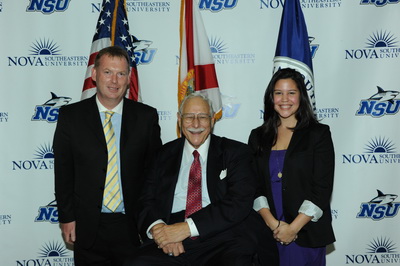NSUs Stem Cell Delivery Approaches for Regenerative Treatment
Grant Winners
- Peter Murray, PhD – College of Dental Medicine
- Kenneth Namerow, DDS – College of Dental Medicine
- Sergio Kuttler, DDS – College of Dental Medicine
- Christine Manguno, BS – College of Dental Medicine
- Rebecca Krygsman, BS – Farquhar College of Arts and Sciences
- Cameron Howard , DMD – College of Dental Medicine
- Stephen Mangan, DMD – College of Dental Medicine
- Jeffery Hanzon, DMD – College of Dental Medicine
- Mark Limosani, DDS – College of Dental Medicine
- Richard Raymond, DMD – College of Dental Medicine
- Yamilet Blanco, DMD – College of Dental Medicine
- Margaret Cielecki, DMD – College of Dental Medicine
Dean
- Robert Uchin D.D.S. – College of Dental Medicine
Abstract

Regenerative medicine can make natural healing processes work faster and better, creating a situation in which missing or damaged tissues that would not have ordinarily re-grown, in fact regenerate fully. Regenerative medical therapies have been demonstrated to heal broken bones, bad burns, blindness, deafness, heart damage, Parkinson's disease, and a range of other conditions. A promising strategy presently under development is the transplant of donated adult stem cells to regenerate missing, diseased, or injured tissues. The rationale for this research is to create a delivery system which can optimize the survival of the stem cells. We propose to use our existing archive of dental pulp stem cells (DPSCs) to test the ability of various delivery systems to maintain stem cell survival. We selected DPSCs for their excellent potential to regenerate bone, teeth, and other soft-tissue types. The goal for this research application is to help initiate research at NSU which can help make regenerative medical therapies become a reality by pursuing the following two specific aims: 1.) Measure and compare DPSC survival within different types of scaffolds using pathohistomorphometric analysis. The types of bone augmentation and injectable scaffolds to be investigated are: DBX demineralized bone, Pepgen P-15 putty, and Puramatrix pep hydrogel. The types of rigid scaffolds to be investigated are: collagen, polymer, and calcium phosphate. 2.) The biocompatibility of the scaffolds will be measured using a Lactate Dehydrogenase Assay (LDA). The pathohistomorphometric data and LDA data will be collected using random blind identification codes to avoid any investigator-bias. The numbers of DPSCs and LDA measurements for each of the scaffolds will be analyzed using analysis of variance statistical tests at a confidence level of 95%. The significance of this study is that it will benefit the health professions and patients by aiding the development of stem cell regenerative therapies.